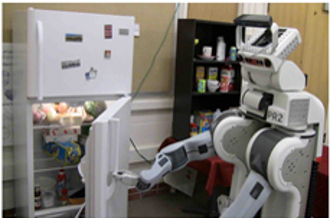 The intelligent automation market is an area of growth waiting to be exploited by channel companies with their finger on the pulse, according to a report.
The intelligent automation market is an area of growth waiting to be exploited by channel companies with their finger on the pulse, according to a report.
The Infoholic Research study with the catchy title “Global Intelligent Automation Market – Drivers, Restraints, Opportunities, Trends, and Forecast up to 2025”, forecasts that the global market for intelligent automation will grow, owing to the increased need for the automation of various functions in hardware or software components.
Intelligent automation finds significant interest from all industries in different forms. There is an increasing requirement to reduce resources to carry out back-end processes. The trend of using various software bots for BPM and IT operation automation, along with factory automation, is driving the industries to focus on more automated operations. This is fuelling the intelligent automation market to grow at a CAGR of more than eight per cent to reach a revenue of ~$300 billion by 2025.
Asia Pacific is leading in the adoption of intelligent automation, followed by Europe and North America. Asia Pacific is expected to hugely invest in intelligent automation to offer higher profitability to the factories. The vendors are focusing on digital technologies, such as AI, IoT, and analytics, to derive better outcomes for enterprises. Asia Pacific is poised to grow at the highest CAGR as the region holds many manufacturing units and automating critical operations would help in improving its bottom-line growth.
The report said manufacturing is majorly contributing toward the intelligent automation market with the focus on the use of robots for industrial automation and control. The other two major shares for intelligent automation are attributed to business process automation and IT infrastructure automation, which are helping enterprises to save millions of dollars on manual activities.
Infoholic Research Research Analyst Swarup Bhowal said: “The advent of digital transformation has led to the automation of various processes and functions. The implementation of AI in RPA, IT operations, and factory robots is paving the way toward full-fledged automation-driven enterprises.”





